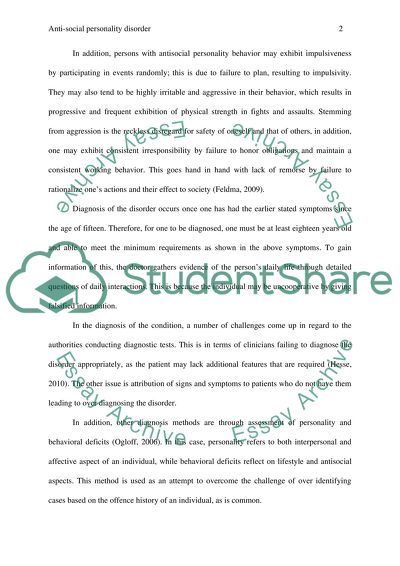Cite this document
(“Anti-Social Personality Disorder Research Paper - 1”, n.d.)
Retrieved from https://studentshare.org/psychology/1457081-anti-social-personality-disorder
Retrieved from https://studentshare.org/psychology/1457081-anti-social-personality-disorder
(Anti-Social Personality Disorder Research Paper - 1)
https://studentshare.org/psychology/1457081-anti-social-personality-disorder.
https://studentshare.org/psychology/1457081-anti-social-personality-disorder.
“Anti-Social Personality Disorder Research Paper - 1”, n.d. https://studentshare.org/psychology/1457081-anti-social-personality-disorder.


